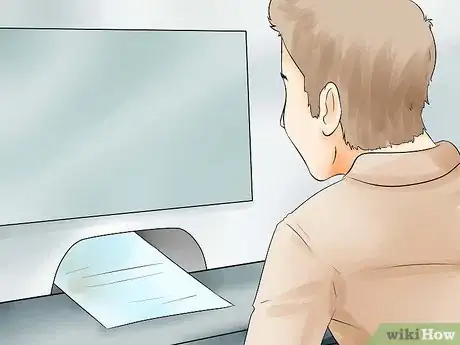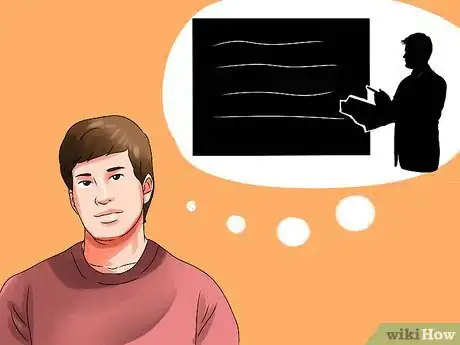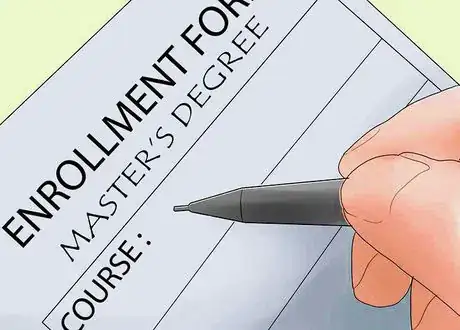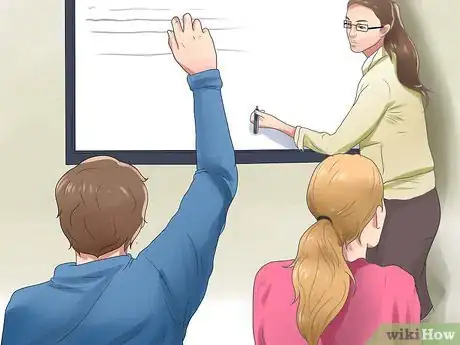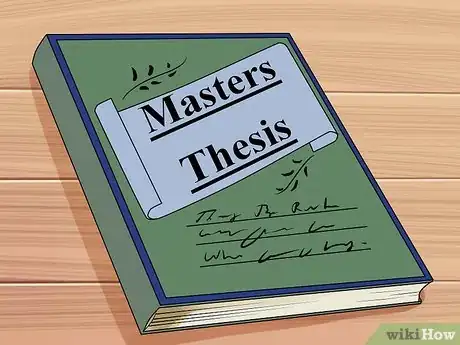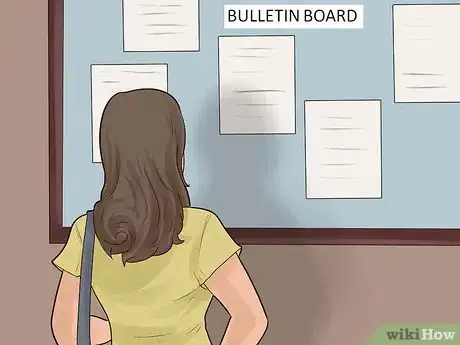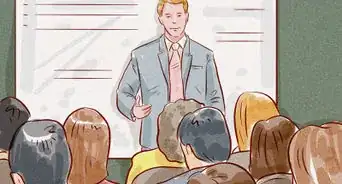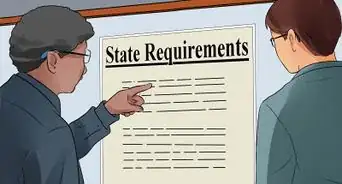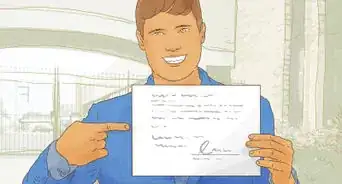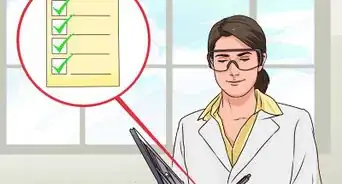This article was co-authored by Language Academia. Language Academia is a private, online language school founded by Kordilia Foxstone. Kordilia and her team specialize in teaching foreign languages and accent reduction. Language Academia offers courses in several languages, including English, Spanish, and Mandarin.
wikiHow marks an article as reader-approved once it receives enough positive feedback. In this case, several readers have written to tell us that this article was helpful to them, earning it our reader-approved status.
This article has been viewed 153,857 times.
An English as a Second Language (ESL) teacher is responsible for instructing non-native English speaking students ranging from children to adults. As an ESL teacher you assist students in learning the English language, focusing on areas such as speaking, reading and writing. Also, you teach students about the different cultures of English-speaking populations, like those in the United States. However, before you can start teaching non-native English speaking students, you must know how to become an ESL teacher.
Steps
Earning a Bachelor’s Degree
-
1Apply to a university or college. A 4-year degree from an accredited university or college is required to become an ESL teacher. Most schools, both small and large, house English, education, or teacher training programs. To make your future job applications as strong as possible, it is wise to select a school that has a strong reputation in the field you are entering.[1]
-
2Select a major. Earn a bachelor's degree in education, teaching or English. The degree takes 4 to 5 years to complete, depending on the program and college you choose. Which major you choose will necessarily impact how you choose to package yourself as a job candidate.[2]
- Many colleges and universities have joint-degree programs that allow you to focus on specific aspects of two majors while earning one bachelor’s degree. These types of degree granting programs are ideal for ESL teachers.[3]
Advertisement -
3Take core courses. If you're pursuing a 4-year degree in teaching or education, then you will likely take core courses related to pedagogy, syllabus development, how to devise testing and assessment techniques, etc. You also must complete general education classes, such as math and political science and elective classes.[4]
- It may be wise to take some general history courses. Knowing the history of the countries of ESL learners may make teaching them English a little easier.[5]
-
4Take foreign language courses. While learning a foreign language is not required to become an ESL teacher, it is strongly recommended. Which language you choose to take is up to you. However, you should be aware that you will have an easier time finding a job if you learn languages that are in demand.[6]
- For example, many European nations, especially in northern and western Europe, maintain a strong knowledge of the English language among their general populations. This will make learning a language like German, Dutch, or Norwegian less marketable than learning a language like Chinese, Spanish, or French.
- Also, keep in mind that many developing nations that house multiple language groups utilize European languages as official languages in the country. So, it will do you little good to learn an obscure language from Senegal or Haiti, when you can just as easily provide instruction in French to people from these countries.
-
5Complete a teaching internship. Most education or teaching-based majors require you to complete an internship to graduate with a bachelor's degree. The internship is usually at a school or learning center and will be arranged by your department. Typically, internships are offered for 1 or 2 semesters and are carried out in the student’s junior or senior year.
- Internships often do not pay regular wages, but they may offer college credit. They may also offer a small stipend.
Earning a Master’s Degree
-
1Know why you’d want a Master's Degree. A graduate degree takes 2 to 3 years to complete. Although the minimum requirement to work is 4-year degree, some employers may prefer hiring an ESL teacher with a graduate degree. Having this degree will not only increase your chances of being hired, but may also bump you up into a higher pay grade once employed.[7]
-
2Apply for a master’s program. Select a program that is well-respected in the field of education or teacher training. As is the case with most graduate programs, the strength of a department lies in the teaching and research strengths of its faculty members. So, be sure to research departmental webpages to know who you will be working with.[8]
- Most graduate programs require students to select a faculty adviser. If this is the case with the program you select, it is wise to contact those faculty members directly to see if they will work with you and support your candidacy. You will also want to mention which faculty members you would like to work with in your application essay.
-
3Complete your coursework. Certain courses, like basic methodology and literature review courses will be required. You should select the remaining courses that fulfill your degree requirements based on the faculty member overseeing the course and the topic of the course, as they pertain to your specialty.[9]
-
4Network. Graduate schools are great places to engage with other respected-faculty members and other students, which can help you find a job later on. While completing your coursework, take every opportunity to attend conferences, workshops and seminars.[10]
- Depending on the size of and available funding in your department, you may be able to get money to attend conferences, workshops and seminars.
-
5Write your thesis. A major component of completing your graduate degree is researching and writing your master’s thesis. This document represents your contribution to ongoing scholarly debates in your area of expertise. Your adviser in the department should be able to help you identify a topic and find resources for writing your thesis.
-
6Acquire letters of recommendation. As you are nearing the end of your degree program, you will want to ask three faculty members, who know you and your work well, for letters of recommendation. These letters will be essential parts of your application for jobs down the line. [11]
Landing a Job
-
1Join ESL organizations. These organizations allow you to network with other ESL professionals and learn more about the career. More importantly, they will allow you to meet people who may be able to provide you with job opportunities, references, or advice on finding a job. Some of these groups are:
- TESOL (Teachers of English to Speakers of Other Languages) is a global organization that holds annual conventions, maintains online forums and blogs, and provides access to TESOL resource centers.
- AAAL (The American Association for Applied Linguistics) is the American branch of IAAL and offers access to peer-reviewed journals, holds annual conferences, and grants student travel awards.
- IAWE (The International Association of Worldwide Englishes) is another global group that brings ESL teachers together, runs a journal, and hold various conferences throughout the year.
- ILTA (The International Language Testing Association) is an organization that runs newsletters, holds online discussions, and hosts annual conferences for people interested in developing testing to gauge how individuals learn languages.
-
2Earn a TESOL certificate. You will need a Teaching English to Speakers of Other Languages (TESOL) certificate to work as an ESL teacher. The certificate provides you with additional ESL training and is offered online or through community colleges and language institutes.[12]
-
3Pass the state teaching examination. States require all teachers to obtain a license to teach at public schools and adult education programs run by the government. Qualifying to take the exam for the license usually requires obtaining a bachelor's degree and finishing a teaching training program.[13]
-
4Work as an ESL teacher. You are now ready to get your career as an ESL teacher started. You can obtain employment through networking, help from college advisers or online employment websites.
- You may find that work for ESL teachers is more readily available outside of the United States. If you plan to work abroad, you will want to apply for or renew your passport and look into getting a visa, if one is needed for where you are going.
- There are a number of websites and online resources for ESL teachers looking to work abroad. Some of those sites are:
- Dave's ESL Cafe provides a list of jobs available around the globe for people looking to teach ESL abroad.
- Teacher Port gives a listing of ESL opportunities across Asia and the Middle East.
- Go Abroad is a website that provides a number of suggestions for finding employment abroad to fund traveling abroad. There are many ESL opportunities on this site as well.
- There are also plenty of opportunities to work as an ESL teacher domestically as well. Some websites that provide opportunities to to teach ESL in the United States are:
- ESL 101 is a searchable database of ESL teaching jobs that allows the user to look for opportunities by country or region.
- The TESOL website maintains a job listing database that can help you find an ESL job in the U.S.
- Remember, ESL goes by a number of different acronyms (EFL, TEFL, ESOL, EAL), so be sure to search for all the associated acronyms when looking for employment. This will expand your job pool quite a bit.
- University and college departmental webpages often maintain links to relevant job search sites. So be sure to scour English, teacher-training, and education departmental websites.
- Many of the teaching opportunities for ESL teachers are found in public schools across the U.S. As such, you will want to look at state government and local school district webpages as well to see if there are any ESL job openings in your area.
Community Q&A
-
QuestionI have a bachelor's degree in electrical engineering. Can I become an English teacher?
 DonaganTop AnswererMost public schools want to hire people with bachelor's degrees (or higher) in teaching. Private schools may observe different criteria.
DonaganTop AnswererMost public schools want to hire people with bachelor's degrees (or higher) in teaching. Private schools may observe different criteria. -
QuestionI studied English language for four years,then did a one year postgraduate diploma in education.I also have a masters in English. I have been teaching for 10 years. Am I qualified to teach in Australia?
 Community AnswerYou most likely are! It would be easier to judge your qualification if you could specify your country of origin. However, ESL stands for English Second Language teacher, meaning you would have to be able to speak the country's first language as well. In Australia you would be a regular English teacher then, unless you are teaching Indigenous students speaking different Aboriginal languages.
Community AnswerYou most likely are! It would be easier to judge your qualification if you could specify your country of origin. However, ESL stands for English Second Language teacher, meaning you would have to be able to speak the country's first language as well. In Australia you would be a regular English teacher then, unless you are teaching Indigenous students speaking different Aboriginal languages.
References
- ↑ http://www.eslteacheredu.org/
- ↑ http://www.eslteacheredu.org/
- ↑ http://www.eslteacheredu.org/education/
- ↑ http://www.eslteacheredu.org/education/
- ↑ http://www.eslteacheredu.org/education/
- ↑ http://www.tesol.org/docs/pdf/2466.pdf?sfvrsn=2
- ↑ http://www.eslteacheredu.org/
- ↑ http://www.eslteacheredu.org/
- ↑ http://www.eslteacheredu.org/
About This Article
To become an ESL teacher, start by earning a bachelor’s degree in education or English from an accredited school. Additionally, consider taking foreign language classes and completing a teaching internship to make yourself a more desirable candidate. Next, decide if you want to pursue a master’s degree, which can increase your chances of being hired and bump your pay grade. When you’re ready to find a job, earn a TESOL certificate from a community college or online, and pass the state teaching exams. To learn how to join ESL organizations to network with other teachers, keep reading!

